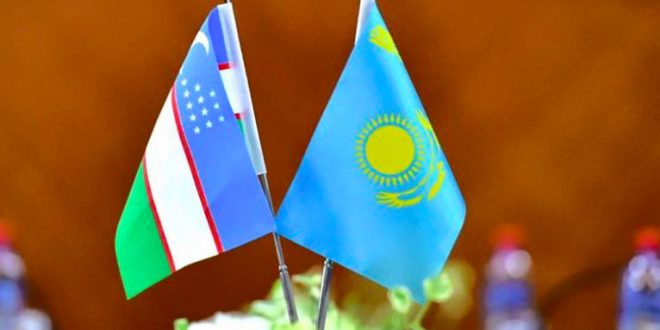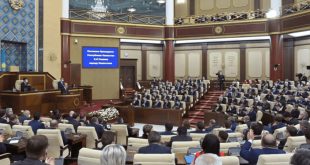In a new series for SBC audiences, global gambling advisory 4H Agency provides an in-depth breakdown of current dynamics and regulatory factors impacting the make-up of gambling in individual CIS nations. The series begins with an analysis of Central Asian neighbours Kazakhstan & Uzbekistan’s contrasting approaches to regulating nascent gambling sectors…
This article will provide an overview of the status quo of gambling regulations in the CIS countries of Kazakhstan and Uzbekistan. Each section dedicated to a particular country will be divided in three parts: (1) general overview of the market, (2) high-level regulations overview, and (3) 4H Agency’s view on the current state of the market.
KAZAKHSTAN
- General Overview of the Market
The Republic of Kazakhstan is a country located in Central Asia. Astana is the capital of Kazakhstan. The country neighbours Russia, China, Kyrgyzstan, Uzbekistan, and Turkmenistan.
Starting from the 19th century, Kazakhstan was, at first, under an influence of the Russian Empire. Later, in 1936, was reorganized as the Kazakh Soviet Socialist Republic (KSSR) and became one of the Soviet Union’s republics. The Republic of Kazakhstan regained its independence in 1991.
Nursultan Nazarbayev became the country’s first President and lasted on his post until 2019, which makes it 29 years in total. Nazarbayev set a rather authoritarian regime in the country aiming to make Kazakhstan an economically developed country mostly through the oil industry. President Kassym-Jomart Tokayev became a successor of Nazarbayev in 2019, and then, in 2022 he also replaced Nazarbayev on the position of the head of security Council of Kazakhstan.
Here is the basic information about Kazakhstan, according to the World Bank, that would help a reader to understand more about the economic and social status of the country:
- GDP (2021) — USD 197.1 billion (Kazakhstan is 54th in GDP rating by World Bank and is placed between Ukraine and Hungary)
- GDP per capita (2021) — USD 10,387.9
- Population — 19 million
- Internet penetration — 85.9%
- High-Level Regulations Overview
Turning to the regulation of gambling and betting industry in Kazakhstan, it is mainly regulated by two legal acts: Law No. 219 on Gambling Business from January 12, 2007 and Law No. 495-V on Lotteries and Lottery Activity from April 9, 2016. The industry is regulated by the Ministry of Culture and Sport.
In Kazakhstan the following gambling verticals are regulated:
- Land-based casinos;
- Slot machine halls;
- Land-based betting;
- Online betting;
- Land-based totalisators;
- Online totalisators;
- Lotteries (however, they are considered to be non-gambling activities).
The licenses are issued for the period of 10 years. The cost of licenses in the regulation is displayed using the MCI indicator. MCI means monthly calculation index and equals KZT 3,063, or EUR 6.6 as of the date of this article. For example, casino license costs 3,845 MCIs which is equal to 3,845 times KZT 3,063, or KZT 11,777,235.
For the convenience of our readers, we will convert the costs to EUR:
- Casinos and slot machines: the issuance of a license costs EUR 25,380. The annual licensing fee is also EUR 25,380
- Betting and totalisators: the issuance of a license costs EUR 4,225. The annual licensing fee is also EUR 4,225.
Gambling tax. It should be emphasized that there is no traditional tax on gambling operations in Kazakhstan. Operators are charged for the substantial elements of operator’s infrastructure depending on particular vertical. For instance, online betting vertical is charged electronic cash register tax (details can be found below). Please see below information related to the tax amount applicable to the element of operator’s infrastructure:
- Gaming tables – EUR 10,960;
- Gaming machines – EUR 400;
- Cash totalizator – EUR 1,980;
- Electronic cash to totalisator (online totalizator) – EUR 26,400;
- Cash bookmaker – EUR 1,980;
- Electronic cash register in a betting office (online betting) – EUR 19,800.
In general, the gambling legislation in Kazakhstan can be considered restrictive and highly regulated. One of the reasons is the influence of the big Kazakhstan’s neighbor – the Russian Federation, where the same misconceptions towards the gambling industry applies. For example, both countries strictly prohibit online casino operations and dedicate only several zones on the territory of their countries for land-based casinos.
Market size. According to our in-house approach to calculation of the gambling market size the size of the gambling market in the Republic of Kazakhstan in the end of 2021 was estimated at EUR 1.26 billion. Even though the online casino operations are prohibited in the market, there is no proper monitoring and the approach to banning offshore operations. Also, Kazakhstan does not have blacklists of unlicensed operators. Thus, it is relatively easy to access websites of big international operators.
Among legal sports betting operators are the following: 1xBet, Tennisi.kz, Parimatch, Fonbet, Pin Up, and Olimpbet.
Pointing out the most recent developments, two years ago, Kazakhstan introduced restrictive amendments to the gambling legislation:
- the types of events on which betting operators can accept bets were limited to sport events;
- betting shops and totalisators can be located only within the territory of designated gambling zones (the same limits as on casino and slot-machine halls);
- a new “center for accounting of bets” would be created and all online betting operators and totalisators should provide information about all their bets to it. This inspiration for this development was taken from the Russian initiative — Center for Taking Interactive Bets (TSUPIS). However, it has not been launched in Kazakhstan yet;
- new mechanisms for the blocking of offshore gambling operators were introduced into the respective regulations.
Moreover, people’s deputies acknowledge the fact of excessive gambling and argue to implement certain responsible gambling tools which aim is to reduce this problem. Another side of this problem is a situation when players use loaned funds to gamble. This fact might lead to a full prohibition of credit card usage while gambling. The Kazakhstan government is also working on the implementation of the set of rules adopted two years ago and specifically creating all technical and regulative infrastructure for implementing new “centre for accounting of bets”.
- 4H Agency’s View
Such restrictive changes do not lead to market growth and development. As far as we understand, the general approach behind the adoption of such amendments was to ensure the protection of citizens from excessive gambling and strengthen the control over licensed operators. While we do applaud to the Kazakhstan regulator’s willingness to improve the industry, it would be better for the market to work on less restrictive legislation for the regulated market and more focused and strict approach for the illegal operations. In any event, it is quite interesting to monitor the active work of authorities towards the development of the gambling industry.
UZBEKISTAN
- General Overview of the Market
The Republic of Uzbekistan is Kazakhstan’s neighbor also located in Central Asia. Other neighboring countries are Kyrgyzstan, Tajikistan, Afghanistan, and Turkmenistan. The capital of Uzbekistan is Tashkent. Predominant religion is Islam. Most people speak Uzbek language, while the Russian and the Tajik languages are also commonly used there. Uzbekistan has also been a part of the Soviet Union as Uzbek Soviet Socialist Republic from 1924 to 1991.
The current president if Uzbekistan Shavkat Mirziyoyev is known for the reforms that push Uzbekistan to market economy, emphasize the importance of civil rights, and help to improve relationship with their neighbors. However, Uzbekistan is still considered to be a poor country with rather low GDP per capita.
The following is the overview of some details, according to the World Bank, about Uzbekistan for better understanding of the context:
- GDP (2021) — USD 69.2 billion (Uzbekistan is 75th in GDP rating by World Bank and is placed between Côte d’Ivoire and Belarus)
- GDP per capita (2021) — USD 1,980.9
- Population — 35 million
- Internet penetration — 71.1%
Being a neighbor of Kazakhstan, Uzbekistan does not have a similar approach to regulation of the gambling industry. Gambling there is totally banned since 2007. However, in the end of 2019 the authorities attempted to legalize online and land-based sports betting. The President Shavkat Mirziyoyev issued a decree on the development of football. One of the provisions of this degree was to launch sports betting operations that would help to fund the sports industry through contributions.
- High-Level Regulations Overview
Even though, according to the decree, the legalization process should have been finalized in the beginning of 2021, there are no visible results, and the betting vertical is still prohibited. Reasons behind such a long postponement are unclear. One of them might be that the governmental body that should be responsible for the realization has been changing three times since 2019. At the moment of the publication of this article, the monitoring body is the Ministry of Sports of the Republic of Uzbekistan.
There is no exact deadline when sports betting will be legalized. However, as it was seen from the discussion of legalization, Uzbekistan is aiming to develop regulations that would be created on the basis of best practices of the EU countries.
Major sports betting companies in the CIS region see the market in Uzbekistan as very promising. One of the reasons is large and active population of young people (more than 30 million). There are companies that already expressed their readiness to enter Uzbekistan and their number will only increase once the regulations are introduced and companies see a clearer path to open this market for their operations.
- 4H Agency’s View
The government of Uzbekistan aims to resolve the obstacles on the way of legalization and continue its track of improvement and modernisation of the sports industry. Uzbekistan looks up to the European countries where it is a common practice to sponsor sports with the help of big sports betting companies, that often act as sponsors of sports teams and athletes and make generous contributions to the industry.










